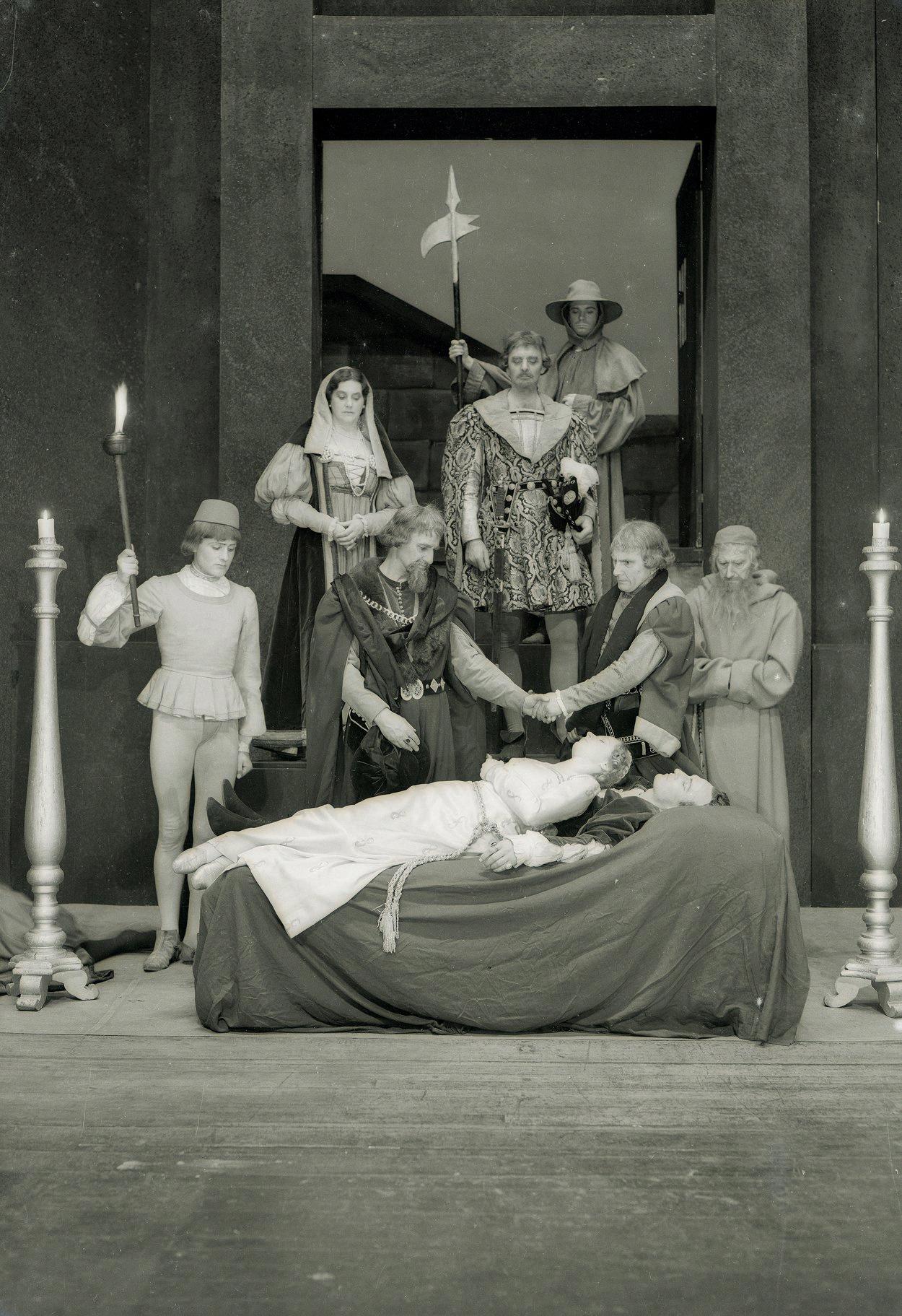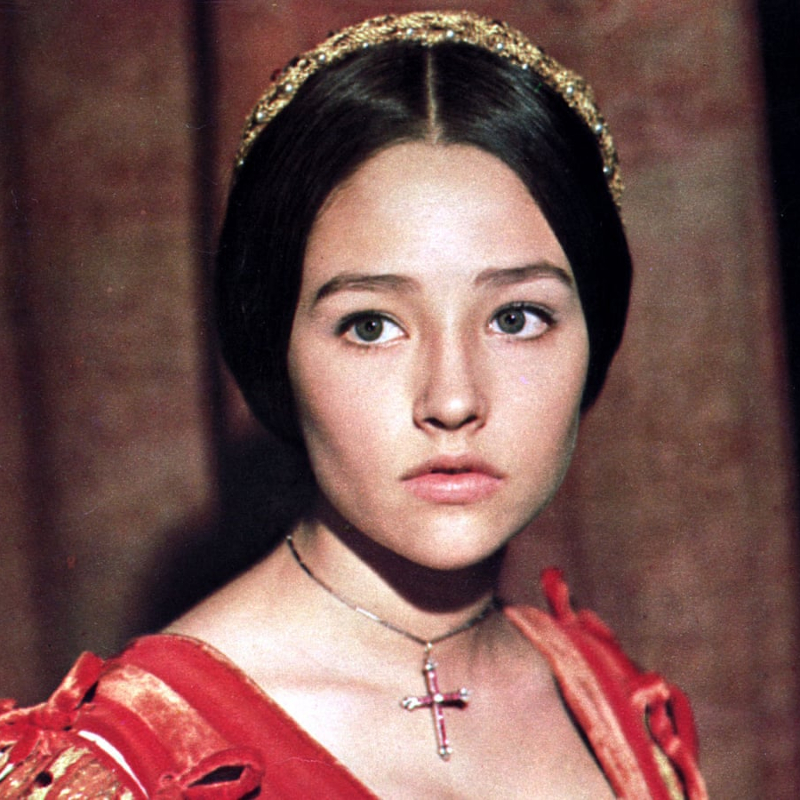Juliet Capulet, one of the main characters in William Shakespeare’s famous play “Romeo and Juliet,” meets a tragic end. In the final act of the play, Juliet takes her own life with Romeo’s dagger after discovering that he has died from taking poison.
Juliet’s death is a result of a series of unfortunate events that occur throughout the play. The feud between the Capulet and Montague families, in which Romeo and Juliet belong respectively, sets the stage for the tragic ending. Despite their families’ feud, Romeo and Juliet fall deeply in love and are determined to be together, but their plans go awry.
After Romeo kills Tybalt, Juliet’s cousin, he is banished from Verona. Juliet is devastated and decides to fake her own death to escape marrying Paris, whom her father has arranged for her to wed. She drinks a potion given to her by Friar Laurence that puts her into a deep sleep, making everyone believe she is dead.
However, Romeo, who is unaware of the plan, believes Juliet is truly dead when he sees her in the Capulet tomb. He takes his own life with poison, and when Juliet wakes up and sees Romeo’s lifeless body, she is devastated. In a final act of desperation and grief, Juliet stabs hrself with Romeo’s dagger, ending her life.
Juliet’s death is a tragic consequence of the intense love she shares with Romeo and the circumstances created by their families’ feud. Shakespeare’s play serves as a reminder of the power of love and the destructive nature of hatred and violence.
The Tragic Deaths of Romeo and Juliet
Romeo and Juliet’s tragic love story culminated in their untimely deaths. Romeo, believing Juliet to be dead, took poison and died by her side in the Capulet family tomb. Juliet, who had taken a sleeping potion to feign her own death, awoke to find Romeo dead and, unable to live without him, she stabbed herself with Romeo’s dagger.
The events leading up to their deaths are rooted in the longstanding feud between their families, the Montagues and Capulets. Romeo and Juliet, despite being from opposing families, fell deeply in love and secretly married. However, due to a series of unfortunate events, including the deaths of Tybalt and Mercutio, Romeo was banished from Verona and the couple was forced to devise a plan to be together.
In an attempt to reunite with Romeo, Juliet took a sleeping potion that made her appear dead for 42 hours. Romeo, who was unaware of the plan, believed Juliet to be truly dead and purchased poison from a local apothecary. He rushed to the Capulet tomb to be with Juliet, were he drank the poison and died.
Upon awaking from her slumber, Juliet discovered Romeo’s lifeless body and the dagger he used to take his own life. Overcome with grief, she chose to join him in death rather than live without him.
Their tragic end ultimately brought an end to the feud between the Montagues and Capulets, as both families were forced to confront the consequences of their long-standing hatred. The story of Romeo and Juliet has since become a classic tale of love and tragedy that continues to captivate audiences today.

Source: rsc.org.uk
Juliet’s Final Words Before Her Death
Juliet says “O happy dagger, / This is thy sheath” before she died. This line from Act 5, Scene 3 of Shakespeare’s play “Romeo and Juliet” is spoken by Juliet as she prepares to take her own life with Romeo’s dagger. The phrase “O happy dagger” can be interpreted as a sense of relief that Juliet will finally be reunited with Romeo in death. The phrase “This is thy sheath” refers to the dagger being the final resting place for the blade and also for Juliet herself. By uing the word “sheath,” Juliet suggests that the dagger is a comforting object, much like the sheath that protects a sword. This final act of self-destruction by Juliet is a powerful and tragic moment in the play, underscoring the depth of the love between Romeo and Juliet and the desperation that they feel in their hopeless situation.
Does Juliet Die From Taking the Potion?
Juliet dies from the potion. In Shakespeare’s play “Romeo and Juliet”, Juliet takes a potion given to her by Friar Laurence, which makes her appar dead for 42 hours. The plan was for Romeo to retrieve her from the Capulet tomb after she woke up, and they would flee together to Mantua. However, Romeo never receives the message about the plan and believes Juliet is truly dead. He goes to the tomb and takes poison, dying next to Juliet. When Juliet wakes up and sees Romeo dead, she is devastated and decides to kill herself with Romeo’s dagger. Therefore, both Romeo and Juliet die tragically in the end.
The Tragic Reason Behind Juliet’s Self-Inflicted Stabbing
Juliet stabs herself in Shakespeare’s play “Romeo and Juliet” because she cnnot bear to live without Romeo. After Romeo is banished from Verona, Juliet is forced to marry Paris, a man she does not love. Juliet seeks help from Friar Laurence, who devises a plan to reunite Romeo and Juliet. However, the plan goes awry when Romeo believes Juliet is dead and kills himself. When Juliet awakens to find Romeo dead, she decides to take her own life with Romeo’s dagger.
It is important to note that Juliet’s decision to kill herself is not due to weakness or lack of willpower. Rather, it is a demonstration of her intense love and devotion to Romeo. Juliet is willing to risk everything, including her own life, to be with the man she loves.
The theme of suicide in “Romeo and Juliet” is a complex one, and it raises important questions about the nature of love, the value of life, and the consequences of rash actions. While Juliet’s decision to kill herself is tragic, it is also a testament to the power of love and the strength of human emotion.
Juliet stabs herself because she cannot bear to live without Romeo. Her decision is a tragic one, but it is also a powerful demonstration of the intensity and depth of her love for Romeo.

Conclusion
Juliet’s tragic death in Shakespeare’s play “Romeo and Juliet” is a result of her profound love for Romeo. Upon waking up from her drugged coma, she learns of Romeo’s death and refuses to leave the tomb. In a final act of desperation and love, Juliet takes Romeo’s dagger and stabs herself, ultimately dying next to her beloved. This heartbreaking ending is a testament to the power of love and the tragic consequences that can result from it. Juliet’s death serves as a poignant reminder of the devastating effects of feuds and hatred, and the importance of valuing love and compassion aboe all else.
